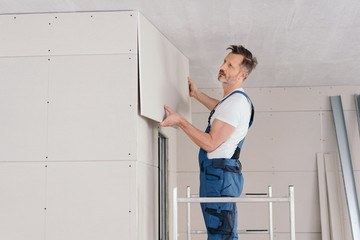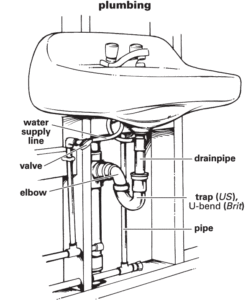Choosing professional Drywall Contractors Las Vegas is a crucial decision. But there are a few things to ensure a smooth, trouble-free project. The first step is to find out how much drywalling will cost. Some drywall contractors charge minor than others, but be sure to check the license of the one you are considering. Also, make sure to read their contract terms carefully. They should include a mechanic’s lien, deposit, payment, etc. Always get your contract in writing so you’ll be protected legally. Lastly, look for drywall contractors who use technology. This includes project management software and customer portals.

When choosing a drywall contractor, ask them to document how much time and material they use. This way, you can proactively track labor productivity. Contractors can produce a cost-to-complete report utilizing a project management solution that captures labor hours. Then, you can determine if there are any inefficiencies in labor efficiency and boost crews to meet the project schedule. You can also ask them about their experience. Choosing a drywall contractor who has experience in the field is an excellent way to protect your property and money.
Doing drywall work requires you to have a good eye for detail. A skilled drywall installer will use tape, measure walls, and tape them correctly. They will also use a mechanical applicator to spread sealing compounds along the wall joints and set the video. A drywall specialist will work on less visible walls, but this does not mean that they will have many problems with sightlines. Moreover, drywall specialists should be able to measure the space they will be working in and find the best location for the wallboard.
Before hiring a drywall contractor, it is essential to research the industry thoroughly. Referrals from friends and family are excellent resources. Check the website of the Association of Wall and Ceiling Industry for drywall contractors. If you’re still confused about how to choose the right contractor, ask for references from past customers and find out their experience. Make sure to check if they have a local phone number so you can contact them in case you have a question about your project.
Another thing to ask a drywall contractor is how much they charge for a job. You can estimate the cost of drywall installation in advance by getting quotes from multiple contractors. The cost of drywall installations can vary greatly, so it’s essential to get several estimates. A low bidder may be a red flag. While a low quote may be tempting, keep in mind that the job can cost more than the average drywalling project. Consider the location, the type of drywall, and the building itself when determining the total cost.
After completing a walkthrough, a drywall contractor may notice a few framing imperfections. An eight-foot level can check if the framing is plumb and straight. Butt strips can help fix defects of up to one-eighth of an inch. The taper can use mud to “float” around the problem areas for more significant problems. However, if there are any imperfections in the framing, the job should be completed by a professional.
Another tip is to call references of drywall contractors. The best drywall contractors have a rigorous rating process to earn this status. However, there are plenty of drywall contractors without a certification. It’s not easy to find a reliable drywall contractor without reference materials. If you cannot access a certified drywall contractor, consider calling a few local drywall contractors and checking with their past customers. However, these people are more likely to give you good recommendations than bad ones.
Plasterers and drywall installers generally work forty hours a week. In some cases, the hours can increase depending on the construction sector, the region, and the job you’re looking for. Plasterers typically work indoors, but they may also work outdoors. While they’re learning, they’re paid 45 percent of their journeyperson’s hourly rate. Try a free online drywall installation cost calculator.
Drywall installers will have specialized tools for hanging drywall. The hammer used in this process is a drywall hammer, similar to a plastering trowel. The collaborative tool applies a plasterlike compound to the joints, feathering it out so that the outer edges don’t show. The hammer also depresses the nailheads to blend into the drywall. This technique helps create a smooth, clean finish.
